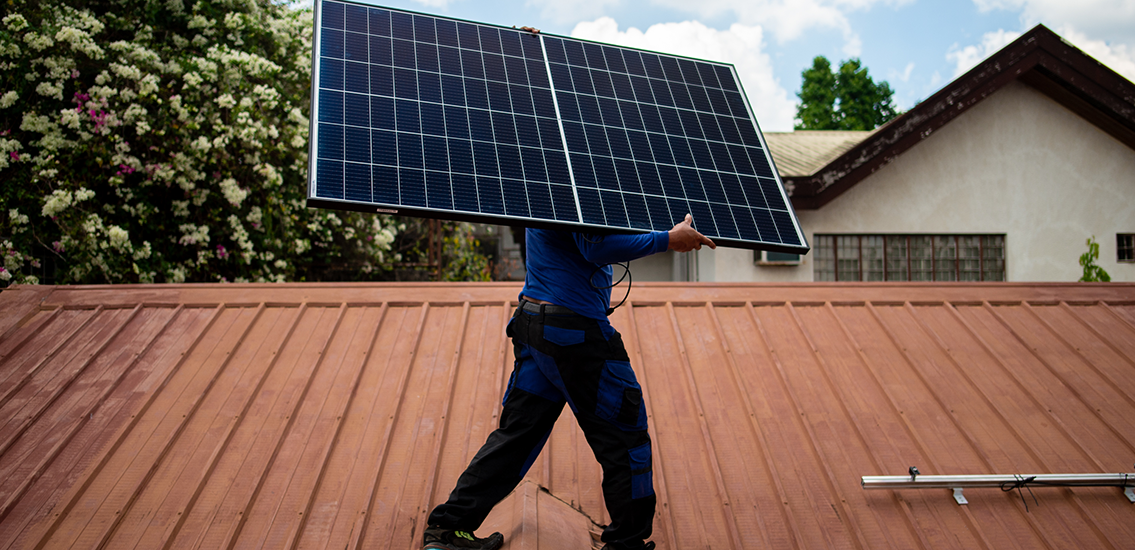The legislation must ensure Indigenous Peoples have opportunities to lead the transition to a net-zero economy.
Fort McMurray, Alberta, Treaty 8 Territory – The Athabasca Chipewyan First Nation (ACFN), the Mikisew Cree First Nation (MCFN), and Ecojustice welcome the Canadian Sustainable Jobs Act (Bill C-50), which was introduced in Parliament today. We are calling for amendments to it that will centre Indigenous Peoples as leaders in the transition to a sustainable, net-zero economy.
By tabling this legislation, the federal government has taken an important step to introduce a governance framework for the transition to a sustainable, low-carbon economy. Our Nations, along with Ecojustice, welcome the creation of a Sustainable Jobs Partnership Council to provide the government with independent advice and engage with Canadians on the transition.
However, improvements are necessary for this legislation to live up to its potential to provide Indigenous Peoples, and impacted workers and communities with the guidance and tools necessary to thrive in a low-carbon future. For example, the proposed legislation does not include mechanisms that ensure Indigenous Peoples have a central role in planning and implementing the transition. This overlooks the opportunity for the federal government to progress towards meaningful reconciliation that affirms Indigenous peoples’ right to self-governance, with Indigenous Nations treated as equitable partners in planning for the future of their lands and people.
The transition to a net-zero economy must be inclusive and equitable, ensuring the workers and communities who will be directly affected shape the transition in the places where they live and work.
ACFN, MCFN, and Indigenous Peoples across Turtle Island (Canada) are disproportionately affected by climate change. They are not just directly affected workers and communities; they also have Inherent, Treaty and constitutionally protected rights. Indigenous Peoples have also been disproportionately impacted by the extraction of resources from their lands and waters, without sharing equally in the benefits. Reconciliation requires addressing the disproportionate impacts experienced by Indigenous Nations to-date and ensuring they have a central role in deciding how the transition occurs.
Over the coming months, ACFN, MCFN, and Ecojustice will engage with Members of Parliament, Senators, and federal bureaucrats to improve the legislation. Many of the elements we want to see in the legislation are outlined in this report: Proposals for the Canadian Just Transition Act, which Ecojustice co-drafted and has been adopted by several Canadian environmental organizations. The groups looks forward to seeing these recommendations reflected in the legislation.
Brian Fung, Manager, Government Relations at ACFN said:
“As northern, land-based communities, we have been seeing the impacts of the climate crisis for years. The recent forest fires in Fort Chipewyan, is just the latest example, and it’s high time the federal government takes action to coordinate the transition to a sustainable, low-carbon economy, in partnership with Indigenous Nations. This legislation is a first step, but it needs to consider those most impacted, and must go much further.”
Melody Lepine, MCFN Director of Government and Industry Relations said:
“We want to work with the federal government in Nation-to-Nation relationships to develop and diversify the economic opportunities for our members. We want sustainable, meaningful, and local opportunities that protect the environment and are compatible with the exercise of our Inherent and Treaty Rights. As the recent tailings releases from Imperial Oil’s Kearl Lake mine have demonstrated, our current economic reliance on the fossil fuel industry comes at a significant cost to the environment, our health, and our way of life.”
Melissa Gorrie, Law Reform Manager at Ecojustice said:
“This legislation includes some promising elements but does not go far enough. Amendments are required to ensure the transition to a low-carbon future is just, and centres the needs of Indigenous Peoples, workers, and impacted communities. As currently drafted, the legislation does not include mechanisms that enable Indigenous Peoples to engage as equal partners in deciding how the transition occurs on their territories.”
ABOUT
The Athabasca Chipewyan First Nation is a Denesuliné Nation and the Mikisew Cree First Nation is a Cree Nation. Their territories centre on the Peace Athabasca Delta, in Treaty 8 territory, an area that is known as northeastern Alberta. The oil sands are within their traditional territories and their primary community is Fort Chipewyan. The Nations are signatories to Treaty 8, which gives ACFN and MCFN members constitutionally protected Rights to carry out their traditional ways of life.
Ecojustice goes to court and uses the power of the law to defend nature, combat climate change, and fight for a healthy environment. Its strategic, innovative public interest lawsuits lead to legal precedents that deliver lasting solutions to Canada’s most urgent environmental problems. As Canada’s largest environmental law charity, Ecojustice operates offices in Vancouver, Calgary, Toronto, Ottawa, and Halifax.

